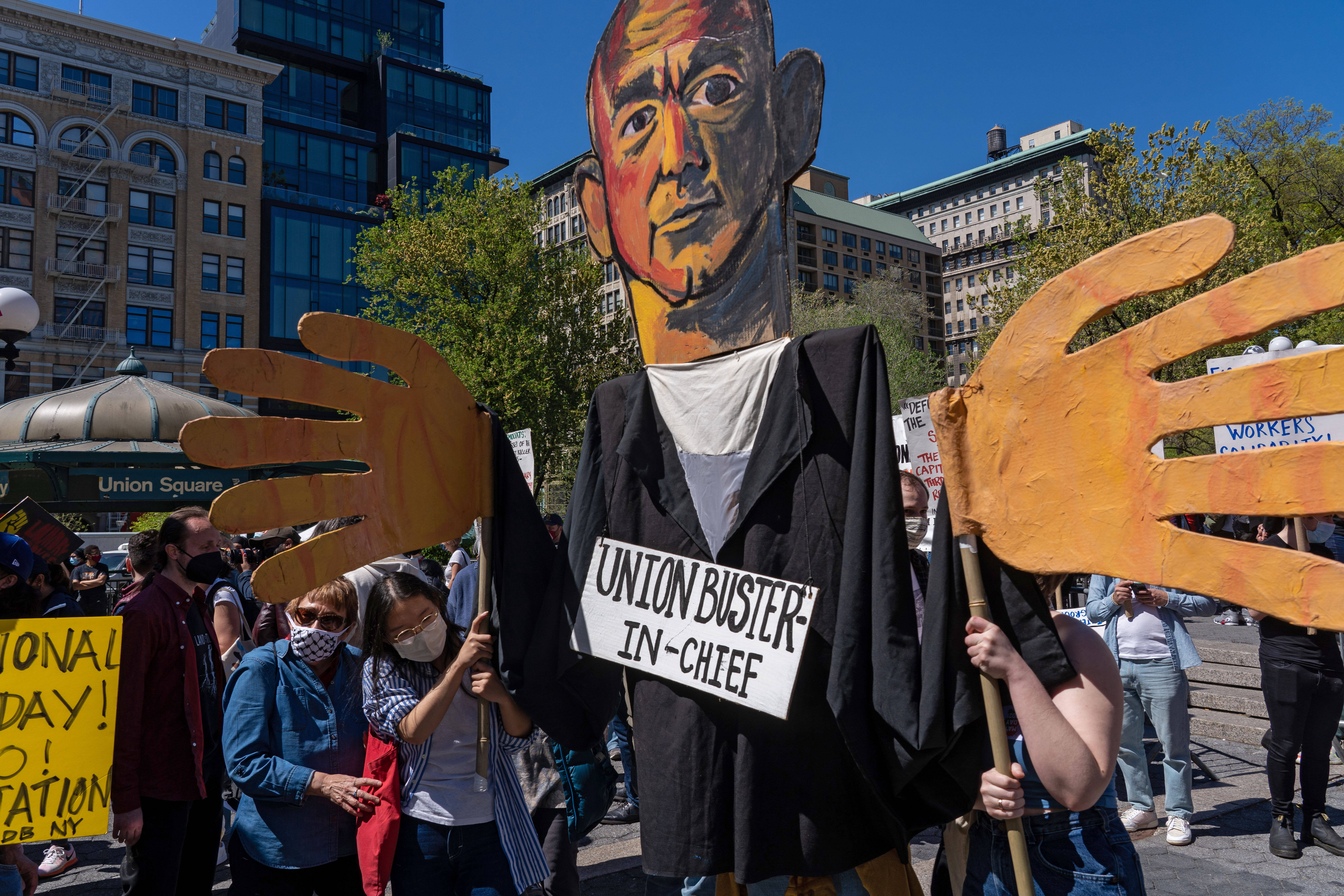
Amazon and SpaceX argued in court today that the US National Labor Relations Board (NLRB) is an unconstitutional body – but a three-judge panel didn't seem particularly enamored of their arguments. Both companies took to the Fifth Circuit Court of Appeals today to argue that the labor watchdog violates the separation of powers between judicial, legislative, and executive duties by vesting authority in administrative law judges (ALJs) to make decisions that impact all three functions. Because those administrative judges have such broad authority, Amazon and SpaceX claim, cases between the pair and the NLRB also violate Seventh Amendment rights to civil trial by jury.
As such, the pair want injunctions on cases barring the NLRB from forcing it to, in Amazon's case, let warehouse employees form a union , and potentially penalizing SpaceX for allegedly retaliating against employees who spoke out against owner Elon Musk's behavior that they believed was bad for the rocket maker. The three-judge panel from the Fifth Circuit appeals court barely even got to the constitutionality elements of Amazon's and SpaceX's cases, however, as they weren't convinced either company had filed a proper appeal. Judges Priscilla Richman, James Graves, Jr, and Irma Carrillo Ramirez took issue with the timelines of both the appeals from Amazon and SpaceX, with concerns that actions taken in neither case rose to the level of effective denial that merited an appeal to their court.
In Amazon's case, Graves took umbrage with the fact that the tech giant apparently expected an NLRB ALJ to make a decision on an injunction the same day they had asked for a supplemental briefing - effectively asking for a ruling the same day. "You have to expect that, if the 27th [of September] was your hard deadline, [the judge] could have received a briefing at the end of the day ..
. and rule? That doesn't seem reasonable to me," Graves said. "Why wouldn't the day they took action be the day to seek emergency action," another of the judges asked without identifying themself.
Amazon legal counsel Trevor Cox argued that, had it waited for a decision to be issued, it would have been too late due to the NLRB's lack of separation of powers, and since a decision wasn't issued the same day, "we had to consider our request denied." SpaceX found itself in a similar situation, with the judges questioning it filed its appeal before the NLRB hearing had even begun. According to SpaceX legal representative Michael Kenneally, SpaceX appealed to the Fifth Circuit on April 30 - after business hours - even though the NLRB wasn't scheduled to begin until May 2.
"I'm having a hard time seeing why you couldn't have waited," one of the judges remarked. Tyler Wiese, arguing on behalf of the NLRB, had his arguments go largely uninterrupted by the judges, who only asked in his response to Amazon what would have happened had the NLRB granted summary judgment the same day as Amazon filed its briefing. Such a decision would have effectively terminated the proceeding, Wiese noted, but the NLRB had never moved that fast, he added.
Wiese and the NLRB argued for the dismissal of Amazon's and SpaceX's appeals on the grounds that the Fifth Circuit doesn't have jurisdiction due to either case leading to the effective denial of the company's claims. Amazon, Wiese said, had several years to make the constitutionality argument but didn't do so until the last minute, while SpaceX had no ability to show that it would be irreparably harmed by a finding against it. It's not clear how the court will decide the matter, or when, but today's hearing seemed to support what Donald Polden, former dean and professor of law at Santa Clara University, told The Register earlier this year when Amazon filed a complaint accusing the NLRB of being unconstitutional.
"The constitutionality of the NLRB (and some other federal administrative agencies) was settled decades ago," Polden told us in February. "I think that the likelihood that a credible federal appellate court would take the claim seriously is very remote." None of the parties involved in the hearings responded to questions for this story.
®.














